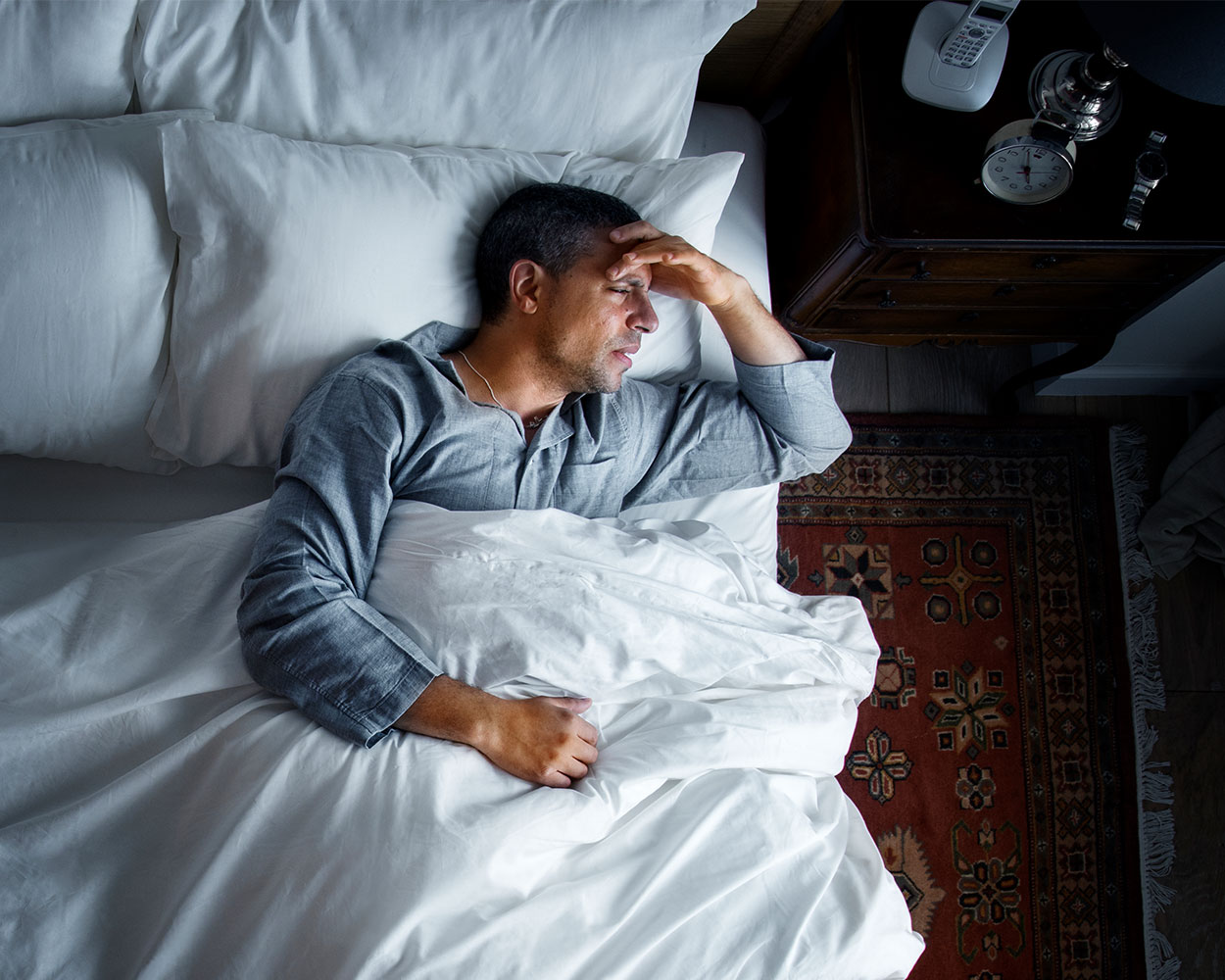When you have trouble falling asleep at night or you find yourself waking up multiple times, it could be more than just having a lot on your mind or drinking too much coffee – it could be insomnia.
Insomnia is a chronic condition that can have a serious impact on your life, affecting your work performance, relationships, and overall health. If you're one of the millions of people struggling with sleep disorders, you're not alone. The good news is that there are many effective, natural strategies you can implement to improve your sleep quality starting tonight.
Understanding Insomnia and Sleep Disorders
Insomnia isn't just about having trouble falling asleep. It encompasses a range of sleep difficulties, including:
- Difficulty falling asleep (taking more than 30 minutes to fall asleep)
- Frequent night wakings (waking up multiple times during the night)
- Early morning awakening (waking up too early and unable to fall back asleep)
- Non-restorative sleep (feeling tired even after a full night's sleep)
These sleep disturbances can be caused by various factors, including stress, anxiety, poor sleep habits, medical conditions, or certain medications. Understanding the root cause of your sleep issues is the first step toward finding an effective solution.
The Science of Better Sleep
Quality sleep is essential for physical health, mental well-being, and cognitive function. During sleep, your body:
- Repairs and regenerates tissues
- Consolidates memories and processes information
- Releases important hormones
- Boosts immune system function
- Clears toxins from the brain
Adults typically need 7-9 hours of quality sleep per night, but the quality of sleep is just as important as the quantity.
10 Simple Tips to Overcome Insomnia Naturally
1. Establish a Consistent Sleep Schedule
Go to bed and wake up at the same time every day, even on weekends. This helps regulate your body's internal clock and makes it easier to fall asleep and wake up naturally.
2. Create a Relaxing Bedtime Routine
Develop a calming pre-sleep routine that signals to your body that it's time to wind down. This might include:
- Taking a warm bath or shower
- Reading a book
- Listening to soft music or nature sounds
- Practicing gentle stretches or yoga
- Writing in a journal
3. Optimize Your Sleep Environment
Your bedroom should be a sanctuary for sleep. Make sure it's:
- Cool: Keep the temperature between 60-67°F (15-19°C)
- Dark: Use blackout curtains or an eye mask
- Quiet: Consider earplugs or a white noise machine
- Comfortable: Invest in a quality mattress and pillows
4. Limit Screen Time Before Bed
The blue light emitted by phones, tablets, computers, and TVs can interfere with your body's production of melatonin, the sleep hormone. Avoid screens for at least one hour before bedtime.
5. Watch Your Diet and Timing
What and when you eat can significantly impact your sleep quality:
- Avoid large meals, spicy foods, and alcohol before bedtime
- Limit caffeine intake, especially after 2 PM
- If hungry before bed, have a light snack containing tryptophan (like turkey, milk, or bananas)
6. Get Regular Exercise (But Not Too Late)
Regular physical activity can help you fall asleep faster and enjoy deeper sleep. However, avoid vigorous exercise within 4 hours of bedtime, as it can be stimulating.
7. Manage Stress and Anxiety
Stress and worry are common culprits behind insomnia. Try these stress-reduction techniques:
- Practice deep breathing exercises
- Try progressive muscle relaxation
- Use meditation or mindfulness apps
- Keep a worry journal to clear your mind
8. Use Natural Sleep Aids Wisely
Certain natural supplements may help promote better sleep:
- Melatonin: Helps regulate sleep-wake cycles
- Valerian root: May reduce the time it takes to fall asleep
- Chamomile: Has mild sedative effects
- Magnesium: Helps relax muscles and calm the nervous system
Always consult with a healthcare provider before starting any supplements.
9. Control Light Exposure
Light plays a crucial role in regulating your circadian rhythm:
- Get bright light exposure in the morning and early afternoon
- Dim the lights in your home 2-3 hours before bedtime
- If you must use devices in the evening, consider blue light blocking glasses
10. Don't Force It
If you can't fall asleep within 20 minutes, get out of bed and do a quiet, relaxing activity until you feel sleepy. This prevents your bed from becoming associated with wakefulness and frustration.
Addressing Specific Sleep Disorders
Sleep Apnea
If you snore loudly or wake up gasping for air, you may have sleep apnea. This serious condition requires medical attention. Lifestyle changes that may help include:
- Maintaining a healthy weight
- Sleeping on your side
- Avoiding alcohol and sedatives
Restless Leg Syndrome (RLS)
For those experiencing uncomfortable sensations in the legs at night:
- Ensure adequate iron intake
- Avoid caffeine and alcohol
- Try gentle leg stretches before bed
- Apply heat or cold to affected areas
When to Seek Professional Help
While these tips can be highly effective for many people, it's important to know when to consult a healthcare professional. Consider seeking help if:
- Your sleep problems persist for more than a few weeks
- Daytime fatigue interferes with work or daily activities
- You experience loud snoring or breathing interruptions during sleep
- You have symptoms of depression or anxiety along with sleep issues
- You've tried multiple strategies without improvement
Creating Your Personal Sleep Success Plan
Improving your sleep doesn't happen overnight. Here's how to create lasting change:
- Start with 2-3 tips: Don't try to change everything at once
- Track your progress: Keep a sleep diary for at least two weeks
- Be patient: It can take several weeks to see significant improvement
- Stay consistent: Maintain your new habits even when you start sleeping better
- Adjust as needed: Fine-tune your approach based on what works best for you
The Path to Restorative Sleep
Quality sleep is not a luxury—it's a necessity for optimal health and well-being. By implementing these simple yet effective strategies, you can overcome insomnia and other sleep disorders naturally, without relying on prescription medications.
Remember, everyone's sleep needs are different, and what works for one person may not work for another. Be patient with yourself as you discover the combination of techniques that work best for you. With consistency and the right approach, restful, restorative sleep can become your new normal.
Sweet dreams await—start implementing these tips tonight and take the first step toward better sleep and a healthier, more energized life.

